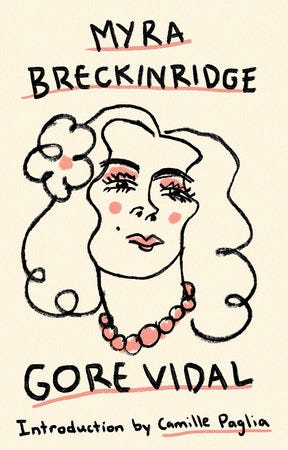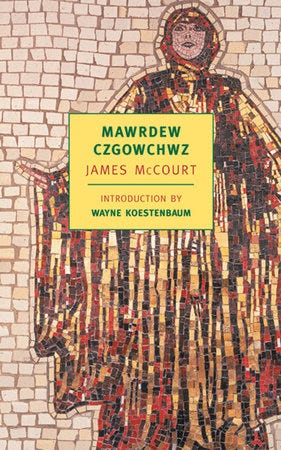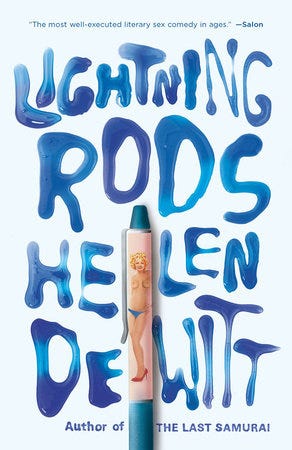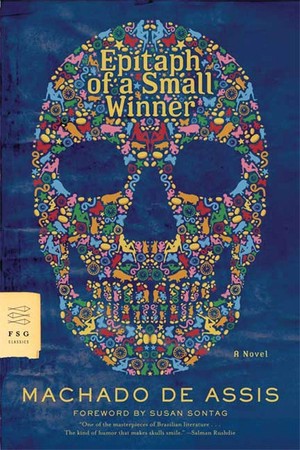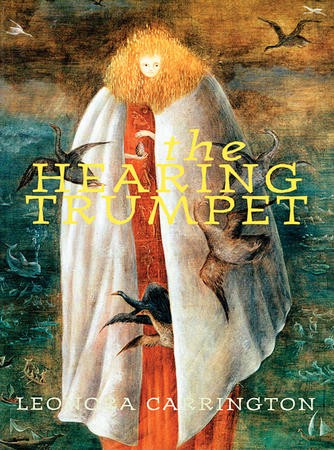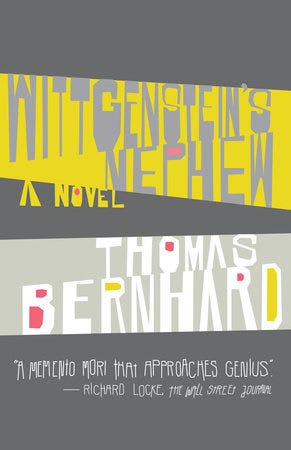Reading Lists
10 Funny Novels About Obsession
Evan James, author of “Cheer Up, Mr. Widdicombe,” recommends comical books about fixations

Our obsessions make us and unmake us; they can drive us forward, keep us spinning in place, push us over the edge. Some lead to breakthroughs, some to breakdowns. Sometimes the line’s not so clear — it’s a heady energy, now creative, now destructive.
We’re all born into a world of obsessions: those of our families, our societies. Their most powerful, all-consuming beliefs and dreams may wear the cloak of tradition and convention. Many of us, in fact, enter this world as obsessions: dreams ourselves made flesh. That gets complicated. Obsession is the drama of belief: fixation.
It can be the comedy of belief, too. I love books like that, where someone gets so carried away with a conviction or project that the whole thing becomes absurd, giddy spectacle. (See Don Quixote or Tristram Shandy, master texts of the fixed idea.) If a distinct sensibility in art is formed by noticing what we notice over time and refining that into a vision, then obsession, fascination, and preoccupation herald — ideally — works of singular intensity and invention. Sometimes they wind up being really funny, too.

I started my own debut novel, Cheer Up, Mr. Widdicombe, ten years ago while obsessively reading P.G. Wodehouse. Every character in my ensemble is driven by an overwhelming desire for something that might seem ridiculous taken to a fanatical extreme: parental disapproval, a spread in a home interiors magazine, Artist’s Way-style creative rehab. But our hobbyhorses often point to deeper quests, a longing to complete the puzzle of a meaningful life. That’s part of what’s so amusing about them.
For anyone who’s ever gone over-the-top, here are ten of my favorite works of comic obsession.
Five Spice Street by Can Xue
“When it comes to Madam X’s age, opinions differ here on Five Spice Street. There are at least twenty-eight points of view. At one extreme, she’s about fifty (for now, let’s fix it at fifty); at the other, she’s twenty-two.” So begins this hilarious novel of proliferating theories and outlandish, relentless gossip by the experimental writer Can Xue. On the three-mile-long Five Spice Street, residents speculate about the sexual appetites and desires of Madam X., meanwhile performing the sort of occult experiments related to ways of seeing and vision that link it to Can Xue’s other works, many of which are rich with similar fixations.
Myra Breckenridge by Gore Vidal
Few voices are as commanding from the get-go as Gore Vidal’s controversial Myra Breckenridge: “I am Myra Breckenridge, who no man shall possess.” Gloriously obsessed with the Golden Age of Hollywood film — and with the sadistic domination Rusty Godowski, wholesome specimen of macho masculinity and a student in her Posture class at the Academy for Aspiring Young Actors and Actresses — transsexual Myra caused a stir in the late 60s by storming the citadel of sex and gender in subversive, high queer style.
Do the Windows Open? by Julie Hecht
The semi-autobiographical narrator of these stories finds cause for shock and mental spiraling in one daily reality after another. Could her optician be “a Nazi (age is right for Hitler Youth)”, “the son of Nazi,” “a neo-Nazi,” or “at least a Nazi sympathizer”? Lying in bed with a headache, is she a wastrel on the order of Oblomov (“Certainly, I looked better and was cuter”), a failed adult in comparison to Jacqueline Kennedy, Hillary Clinton, or Princess Diana? Was Nantucket better when Thoreau used to come and give lectures? “Maybe that was the time of the world of ideas. But this was the new world. What kind of world was it? It was some other kind of world, and there was no escape.”
Flight to Canada by Ishmael Reed
One of the many great things about Ishmael Reed’s Civil War satire is the author’s technique of collapsing historical and contemporary references into a singular comedic vision. Described in The New York Times as a “demonized ‘Uncle Tom’s Cabin’” (Harriet Beacher Stowe gets some memorable comeuppance), it tracks the fates, primarily, of 1) Raven Quickskill, a poet fleeing slavery, fixated on reaching Canada (“Everybody had turned their attention toward Canada. Barbara Walters had just about come out on national television to say that the Prime Minister of Canada, this eagle-faced man, this affable and dapper gentleman who still carried a handkerchief in the left suit pocket, was the most enlightened man in the Western world”), and 2) slave-owning Southerner Arthur Swille, who receives Lincoln as a guest in the middle of the war and who meets a most appropriately deranged Gothic end.
Mawrdew Czgowchwz by James McCourt
When I think about this novel I want to faint. In it, gay talk and obsessive connoisseurship rise to sublime heights; a group of New York opera queens fetch the Czech diva Mawrdew Czgowchwz (pronounced, by them and by all others hence, “Mardu Gorgeous”) to America, the better to carry out their adoration of the self-proclaimed “oltrano” (a new vocal category she has invented for herself”) and their rivalry with the “Neriacs,” worshippers of Morgana Neri, “diva of yesteryear.” “Those first years began: the Czgowchwz Era. Neri commenced to frazzle; lines were drawn.”
Lightning Rods by Helen deWitt
“His first fantasy was about walls. The woman would have the upper part of her body on one side of the wall. The lower part of her body would be on the other side of the wall.” In Helen deWitt’s second published novel, a vacuum salesman’s recurring sexual fantasy leads, through a combination of sheer moxy and an obsessive, absurdist elaboration of corporate workplace logic, to a hugely successful anti-sexual harassment program involving a system of “lightning rods”: female employees who serve as anonymous sexual outlets for high-performing men. Hilarious, unsettling, monomaniacal — a book about a quixotic project made improbable, provocative reality.
The Doorman by Reinaldo Arenas
Juan, a Cuban refugee in New York in the 80s, works as a doorman at a tony apartment building. His run-ins with its eccentric tenants — a woman who has tried to kill herself countless times only to be repeatedly thwarted by fate, the owners of the world’s most expensive and intelligent dog (leader of a fantastical pet rebellion later in the novel) — crackle with satirical, tragicomic energy. And then there’s Juan’s metaphysical idée fixe: “…suddenly our doorman discovered (or thought he had discovered) that his tasks could not be limited to just opening the door of the building — but that he the doorman, was the one chosen, elected, singled out (take your pick) from all mankind to show everyone who lived there a wider door, until then either invisible or inaccessible: the door to their own lives, which Juan described as — and we must quote him exactly even though it may seem (and, in fact, be) ridiculous — ‘the door to true happiness.’”
Epitaph of a Small Winner by Machado de Assis
One of the great, timeless comedies of digression and formal play: the fictional posthumous memoirs of Braz Cubas, written from beyond the grave. “I died of pneumonia; but, if I were to tell the reader that the cause of my death was less the pneumonia than a great and useful idea, possibly he would not believe me, yet it would be true.” The idea is an “anti-melancholy plaster, designed to relieve the despondency of mankind,” and while in the process of developing it a “draught of air” catches him “full on,” leading to his swift demise. “God deliver you, dear reader, from a fixed idea; better a mote in your eye, better even a beam.” The memoirs that unfold from there, told in short chapters, are full of wit, pessimism, enchantment, and, well, melancholy.
The Hearing Trumpet by Leonora Carrington
I feel a deep fondness for Marian Leatherby, the 92-year-old woman with a “short grey beard” (“Personally I find it rather gallant”) who narrates the surrealist painter and writer Leonora Carrington’s unusual, amusing novel of mystical cronehood. Packed off to a home of sorts by her family (it’s a send-up, apparently, of George Gurdjieff’s Institute for the Harmonious Development of Man), she soon becomes preoccupied with a portrait that hangs in the dining room. “Really it was strange how often the leering abbess occupied my thoughts. I even gave her a name, keeping it strictly to myself. I called her Dona Rosalinda Alvarez della Cueva, a nice long name, Spanish style.” Turns out this obsession heralds nothing less than a cataclysmic transformation of life on earth.
Wittgenstein’s Nephew by Thomas Bernhard
No list of books about comic obsession would be complete without at least one work by Thomas Bernhard. His signature style — full of looping, repeated thoughts and phrases — typically reflects his narrators’ obsessive, searing deconstruction of bourgeois Austrian hypocrisy. The autobiographical Wittgenstein’s Nephew concerns his friendship with Paul Wittgenstein, nephew of the philosopher, who, hospitalized in the mental institution Am Steinhof while Bernhard is in a neighboring pulmonary ward. It’s an excoriating reflection on illness, friendship, and the failures and denials of society at large. “The healthy always make it particularly difficult for the sick to regain their health, or at least to normalize themselves, to improve their state of health. A healthy person, if he is honest, wants nothing to do with the sick; he does not wish to be reminded of sickness and thereby, inevitably, of death.” It has one of the most haunting conclusions of any novel I’ve read.





